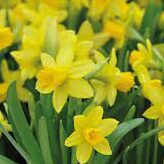
This Sunday is Mothering Sunday. It is a strange mixture of religious and secular; a Sunday that has its origins in the Middle Ages as a celebration of the Church as a mother to all her had been admitted to her by baptism. More specifically, it was a time to visit the church in which the individual had been baptised; this was a person’s mother church. It was celebrated half-way through Lent, an excuse for some festivities and eating during a period when most would be expected to fast. By the seventeenth century the focus had shifted, now it was a day when those in service, either in houses or on farms, were given a day off to visit their mothers. The tradition of simnel cake and savoury buns comes from the Gospel reading for this day, where Jesus feeds the 5000 with a few loaves and fish. Mothering Sunday may have passed into the backwaters where we now find Rogation and Lammas tide, if it were not for developments in the United States, where Anna Jarvis had campaigned for a day to celebrate mothers. This inspired Constance Penswick Smith in this country to re-establish Mothering Sunday as a specifically Christian (initially Anglican) celebration of the role of mothers in Christian families. Thus in our very secular world, we still buy cards and flowers to send on what was once “Refreshment Sunday” in Lent.
On Sunday, I will be at Glazeley, where my mother was baptised; in my prayers I will give thanks for the love that I had from both Mum and Dad, the people from whom I learnt what love is. In our environmentally conscious times some now also see the day as a time to give thanks for fruitfulness of “mother” earth; Mothering Sunday is wonderfully adaptable. And I will join with others in celebrating all those who are mothers or act as mothers, through good times and bad; the times as children we love them, the times we find that less easy. They remain our mothers, the people who brought us into the world.